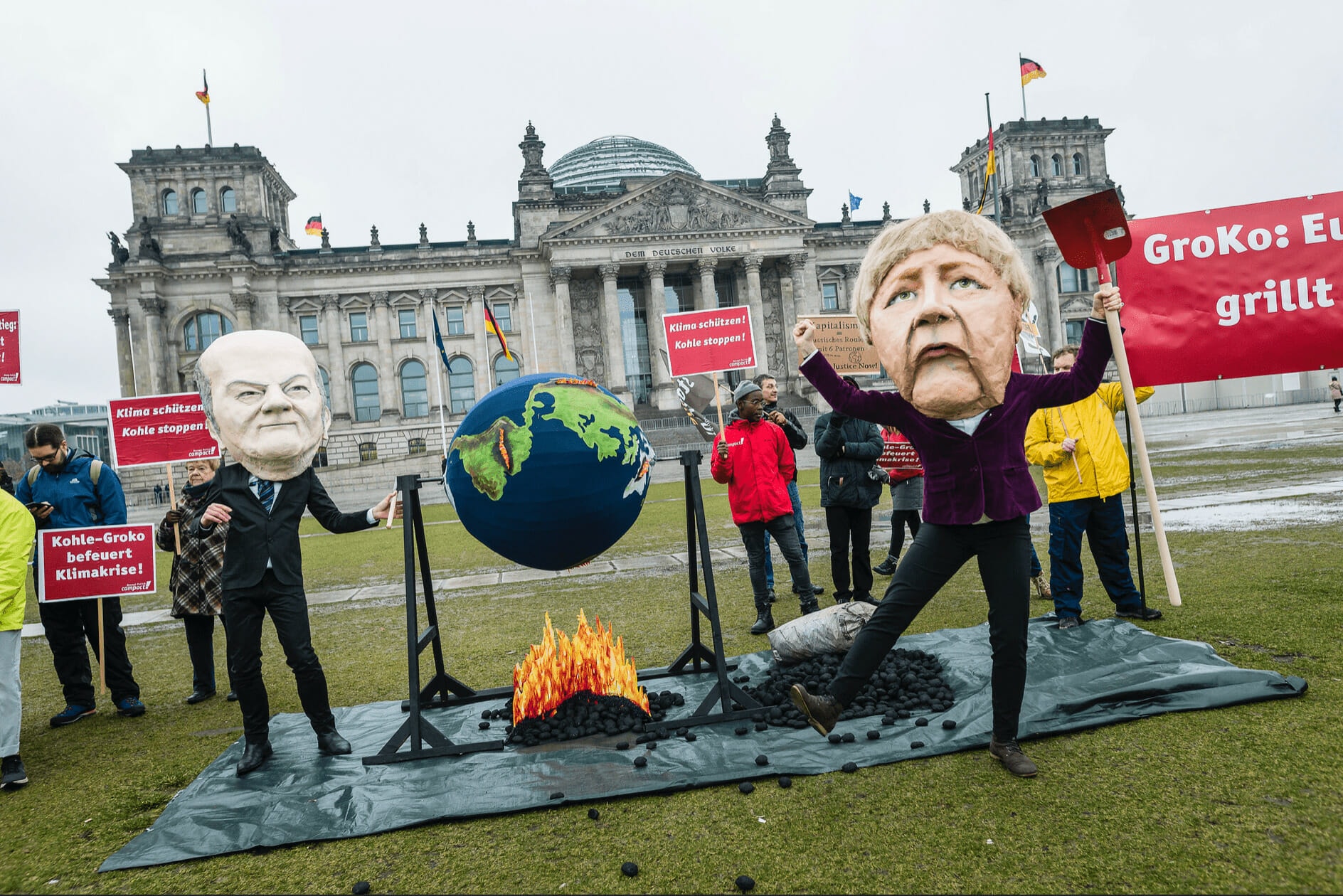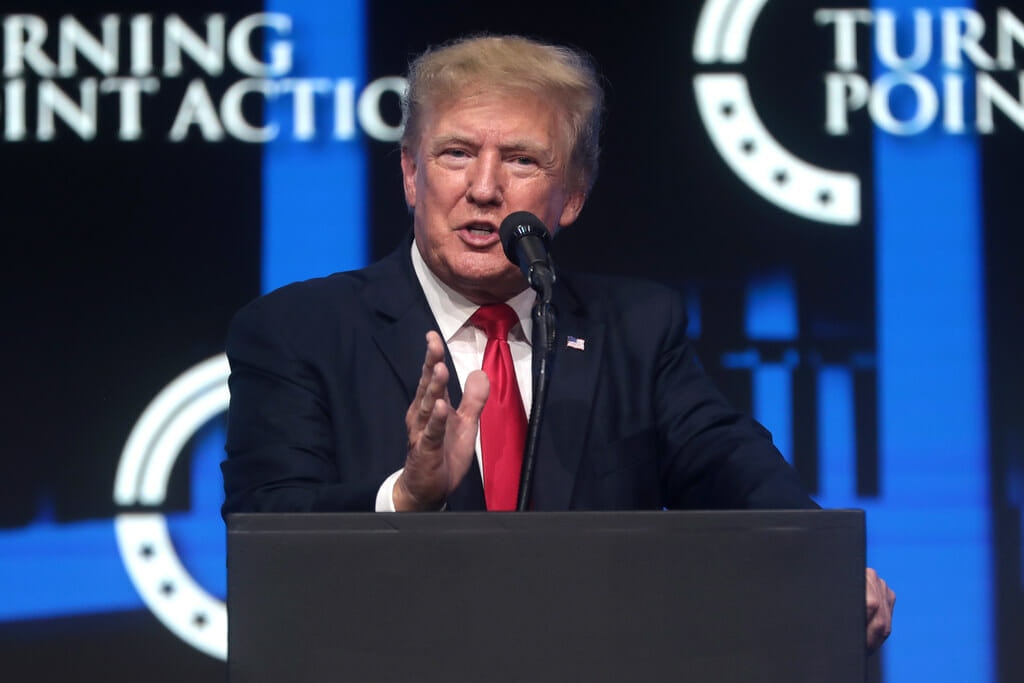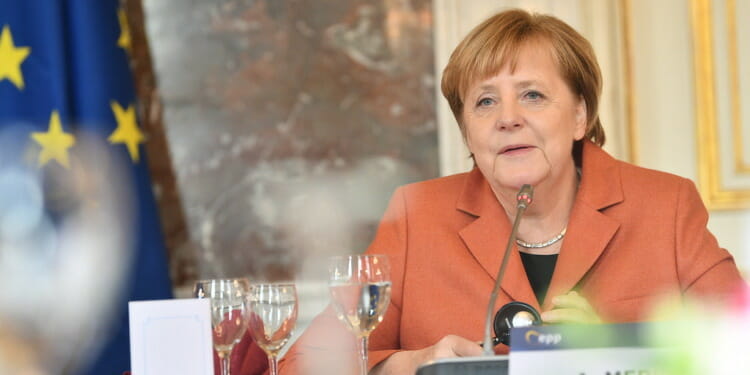After almost 16 years at the helm of Europe’s largest economy, Angela Merkel is set to step down from her role as Chancellor after federal elections take place on the 26th of September. Merkel has led the country through a global economic crash, a migrant crisis and most recently a pandemic and she has done so with her renowned sense of rationality and scientific caution.
Merkel’s 30-year career in politics came after a start in scientific research. Formerly a PhD student in quantum chemistry, Merkel then studied the quantum mechanics of gas-particle collisions and co-authored several papers.
“She was pushing the limits of accuracy using the data and computational tools available to researchers in the 1980s…. Merkel’s research was state of the art for its time” says Alán Aspuru-Guzik, a quantum chemist at the University of Toronto in Canada.
Her politics was no different. Merkel’s approach to politics differs incredibly from her contemporaries as she focuses on research and evidence-based thinking, a skill developed in the scientific world.
Under her guidance, the role of science has become prioritised in political decision making – a development that will prove increasingly important as threats, both domestic and international, become more science-based.
Merkel regularly held meetings with scientists and research managers, allowing her to stand at the forefront of innovative ideas such as artificial intelligence (AI), quantum computing and hydrogen technology. Her expertise in science pushed scientists to be prepared for her expert-level questions and allowed her to understand the implications these ideas could have for the political economy of Germany and the world beyond.
These meetings drove initiatives such as a 2 billion euro programme in quantum computing and related technologies and a 3-5% increase in research and university funding every year since 2006.
These investments may have paid off as German researchers invented the first diagnostic test for Covid-19 and the first vaccine to rely on m-RNA technology. It also allowed her to effectively assess the evidence behind lockdowns, a move that won her popularity in the polls.
Although the legacy that Merkel leaves behind may be a contested one, there is no doubt that she has led with pragmatism and sober evaluations; traits which will be intensely sought after in her departure.
Related Articles: German Green Party Attempts to Capitalize on Turning Point Election | Future Pandemics: Act Now or Pay More Later
Germany’s upcoming election looks to be one of the most uncertain in history but is likely to end up in a rare three-party coalition. This coalition could bring out the best of each party involved (likely a liberal combination of SPD, Greens and the FDP or a more conservative coalition of the CDU/CSU, the Greens and the FDP) but could just as likely lead to internecine gridlock and bickering.
Regardless of which party holds the most seats or who the chancellor will be, it is clear that politics needs more politicians like Angela Merkel – politicians with a scientific background.
Worryingly few politicians have a background in science, technology, engineering and mathematics (STEM) but it allows for a demeanour and approach to politics that is rapidly becoming more necessary.
Notable politicians in the past with scientific backgrounds have been vocal about climate change. Merkel, however, was an outlier to this trend as she progressed through her political career and focused more on the economic benefits of fossil fuels than their environmental impact.

Although a contested figure due to her right-wing policies, Margaret Thatcher was actually one of the first and most vocal leaders addressing climate change. After completing a Bachelors of Science, studying under Dorothy Hodgkin and working as a chemical researcher, she transitioned into the world of politics. As Prime Minister, she aided the founding of the UN’s Intergovernmental Panel on Climate Change (IPCC) and helped fund the Hadley Centre which stood as a global authority on human-induced climate change.
Similarly, Jimmy Carter, the 39th President of the United States was a visionary when it came to conservation, climate and justice. Carter served as an engineering officer on America’s second nuclear submarine and later studied graduate-level nuclear physics. This background led him to be revolutionary when it came to climate policy; so revolutionary it seems that his country was not prepared for it.
However, this revolutionary look at the future and vocal ambition on climate change could have led us to an incredibly different (and more sustainable) present if only these leaders were surrounded by other politicians who understood the science.
The current pandemic could also have turned out quite differently if politicians had listened to scientists about the urgency of being prepared for viral pandemics. Including the need to listen to One Health advocates and integrate it in public health systems. Many of the threats that face humanity – pandemics, AI, the climate crisis and nuclear weapons – are rooted in science and will need scientific solutions.
If governments and institutions continue to be filled with politicians who aren’t science-literate it is hard to see how they will competently react to coming crises, far less prepare for them in advance in a way that will limit their impacts. Unfortunately, current trends seem to suggest that there are far more politicians who completely deny scientific facts being elected into positions of power than there are politicians with scientific education.

Scientific politicians are not just aided in their knowledge of complex, scientific concepts but in the tools that such a study sets them up for. Science is a field rooted in rationality and objectivity, traits that aided Merkel in retaining her chancellorship as well as the title of the most powerful woman in the world; traits that allow scientific reasoning and evidence to prevail over ideological pressure.
It is undeniable that the legacy of Angela Merkel will leave a hole in global politics and leadership. However, this hole may not loom so large if politicians with scientific backgrounds are able to step up and take action. Even more so, if they can drive momentum in tackling the climate crisis, a feat which Merkel was disappointingly quiet about. Merkel was restricted by political and economic affairs, but the introduction of more scientific politicians will undoubtedly pave the way for a political atmosphere that relies more on reason than relationships.
Editor’s Note: The opinions expressed here by Impakter.com columnists are their own, not those of Impakter.com. — In the Featured Photo: German Chancellor, Angela Merkel at the 2019 EPP Summit, Brussels. Featured Photo Credit: European People’s Party










